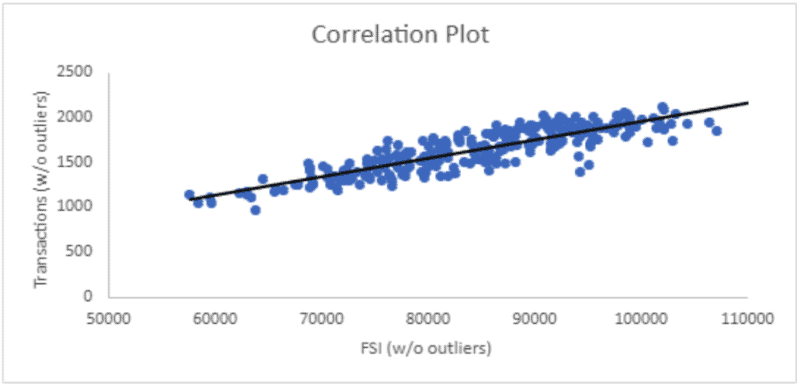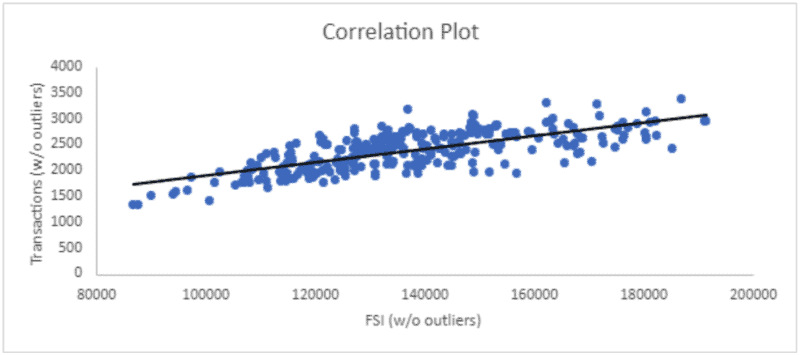Through correlation analysis, we establish a positive association between flight search initiation (FSI) and transactions recorded in eCommerce from Google Analytics, highlighting the relationship between conversions and flight search initiation.
Introduction
Evaluating any digital marketing activity is a fundamental process that aids in understanding a company’s digital health. Most companies choose engagement or revenue metrics for this analysis, often concentrating on the final stages of the conversion funnel. However, they frequently overlook the preceding steps that drive traffic to this final stage.
At EveryMundo, we emphasize flight search initiation as the key metric for measuring user interaction. This occurs on landing pages (airTRFX) and modules (airModules), starting the flight booking process within airlines’ internal booking engine (IBE).
By examining user-initiated booking frequency, we can determine if the pages are adequately intuitive, providing the expected high-quality user experience. This process also identifies “pain points” that can be optimized through further investigations and conversion rate optimization (CRO) techniques.
How does FSI work and why is it important?
Your website functions as your store, while the landing pages (airTRFX) serve as the store shelves that house all the products (flights) from your catalog (airModules). Before a client makes a purchase, they choose which product convinces them, bringing it to the cashier (IBE).
Flight search initiation (FSI) measures user interactions—clicking on airModules or completing the booking mask module. FSI calculates the count of users who progressed to the final stages after deciding on one or more products. Encouraging customers to reach this stage is challenging due to market competition and varied prices influencing their decisions.
After persuading a client to select a favored “item” (flight), the experience shifts to the hands of the internal booking engine (the cashier). It provides additional options, final prices, and payment method details to complete transactions.
As you can see, without convincing the clients to make the purchase – even if they are only digging deeper into their flight search – the transactions will not go through. Therefore, to ensure a positive user experience, optimize the front and initial stages of the booking funnel. This association between each step guarantees higher conversion rates.
However, it is always necessary to prove that the relationship between these stages. Flight search initiation from the shopping process and eCommerce transactions from the buying process, have an association that implies a positive relationship between them.
The what and why of this study
A correlation coefficient is a measure that determines the degree of the strength and direction of a relationship between two or more variables. It’s related to statistical association and linear correlation, where the value of one variable may at least partially predict the value of the other variable.
This study aims to establish a statistically significant correlation between FSI and Transactions. This correlation validates FSI as a success and optimization KPI for ongoing analysis and future online experiments (A/B tests).
The methodology we implemented
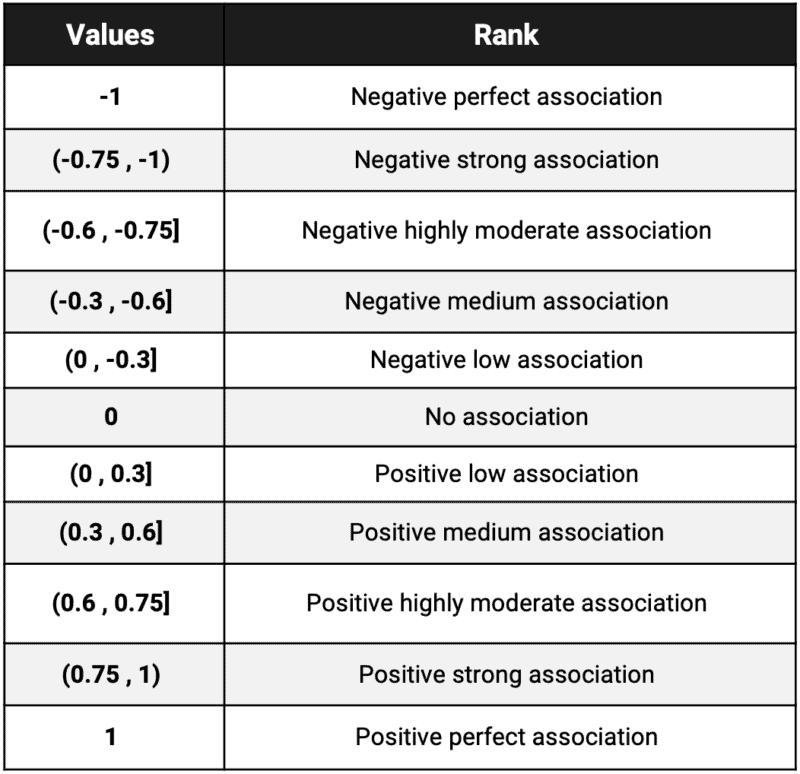
Based on the data distribution (normal distributed or not), we selected the statistical test to prove that both variables are correlated. Pearson’s correlation coefficient if they are normally distributed or Spearman’s correlation coefficient if they are no-normally distributed (learn more about correlation analysis here).
To get the data pairs, we divided each data point per day. Thus, we could study the behavior of FSI and eCommerce transactions for 275 days. FSI was treated as the X value (independent variable), and eCommerce transactions as the Y value (dependent variable) because, based on the time they occur, FSI happens first.
We classify the correlation coefficient based on the following ranks to get a reasonable interpretation of the results. The intervals are seen in the chart to the right:
The correlation analysis results
After conducting the test, we concluded that there’s strong evidence of a moderately positive, statistically significant link between flight search initiation (FSI) and eCommerce transactions across all channels. Additionally, in organic and direct channels, we found a statistically significant, strong positive correlation between these variables. This indicates that these two variables change concurrently: as the number of unique FSI events increases, so does the number of transactions.
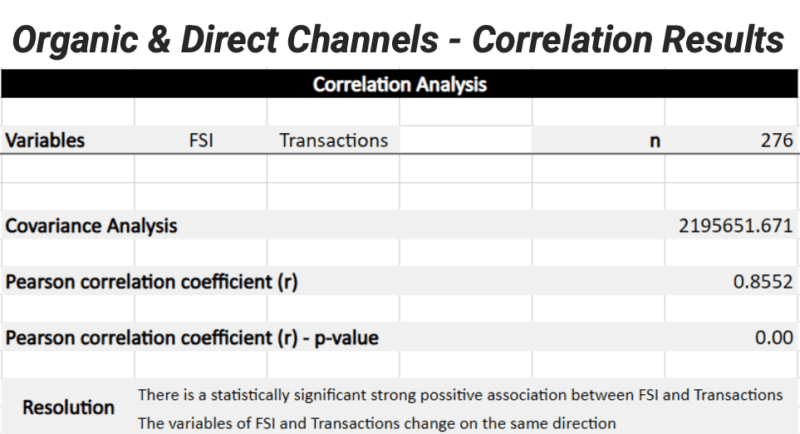
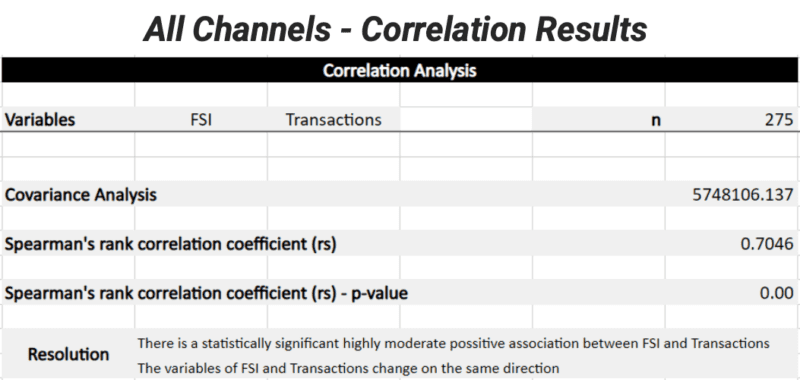
Conclusion
This study opens an opportunity to treat flight search initiation (FSI) as a proxy metric for Google Analytics’ ecommerce transactions of the airlines’ digital business. It also provides a medium to assess and improve the performance of airTRFX pages, which ultimately allows us to make data-driven decisions.
Learn more about our products here: https://www.everymundo.com/products/


